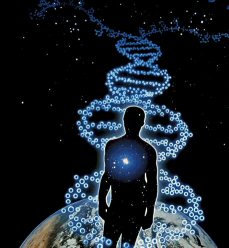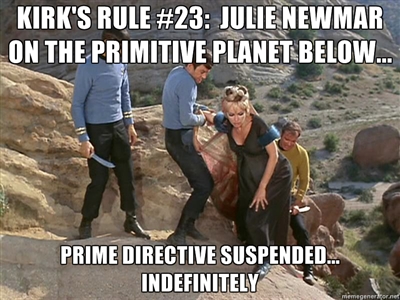So, Where is Everybody?
Hello? Is there anybody out there?
Dr. Frank Drake conceived an approach to bound the terms involved in estimating the number of technological civilizations that may exist in our galaxy. The Drake Equation, as it has become known, was first presented by Drake in 1961 and identifies specific factors thought to play a role in the development of such civilizations.
The short, common form of expression of the most positive potentials of this equation is: "Odds suggest there's lots of technological civilizations out in the universe, so why haven't they contacted us yet?"
Or, in the other end of the possibility range, "if advanced, intelligent life exists elsewhere at all, it's going to be extremely uncommon." —OregonMuse on Ace of Spades
![]()
It's been practically half a century since I read Asimov, but as I recall, in his Foundation and related science-fiction, Asimov projected a creation where the only human-intelligence level reached was earth-spawned humans. Other proto-forms of life were found, but nothing else close to intelligent life. Part of this formulation is the first arrivals (that would be us) interrupt the natural development of any other life form; the "niche" of intelligent life having been filled, we prevent any other. Yay us.
Of course, it makes for easier SF if you don't have to make up a cosmos full of extraterrestrials. Yet some of the finest (and sometimes worst) of science-fiction has been the "first encounter" story, where incredibly different cultures meet.
Galileo suffered from geocentric theology. Pre-reason religionists could be forgiven for thinking geocentrically. The scriptures don't mention that stars are suns with other planets; pre-reason, pre-Copernican people wouldn't've even been able to grasp the concept (some still can't today). The modern believer can't help but put the Drake Equation into the formula. Like the question of why God would allow Evil in the World, the question of Where Is Everybody? can be a challenge for belief.
 I would presume that intelligent life evolves everywhere, yes in astonishing variety, yet along recognizably similar lines as our evolution because it's inherent to the design as light and water and air and carbon. (My Physics 100 professor said something like this.)
I would presume that intelligent life evolves everywhere, yes in astonishing variety, yet along recognizably similar lines as our evolution because it's inherent to the design as light and water and air and carbon. (My Physics 100 professor said something like this.)
I assume life evolves out of mud (possibly with some nudging), that motility induces central nervous systems, which grow brains which look and think and wonder and eventually recognize, "I am me" and "you are not me" and morality and theology derive from that realization everywhere just as they may in the development of any terrestrial.
My view is that Darwinian evolution is really quite predictable, and when you have a biosphere and evolution takes over, then common themes emerge and the same is true for intelligence.
Therefore, just as we have (rather recently) discovered that galaxies abound and planets are plentiful, we can project that the solar systems of the universe, naturally, will be as teeming as possible with the children of the Almighty.
Even more, moving science under the more general umbrella of theology, the faithful assume that this is not some randomly-fluctuating mechanism in which we are spawned, but that the universe is under the overcontrol of, not the Almighty First Source and Center his own self directly, necessarily, but at least direct and trusted appointees, as it were.
It is, in other words, a grand, well-ordered universe, designed to be inhabited.
So, again, where is everybody?

Taking the above assumptions, presuming we're not unknown but well-known to the Governors of the Galaxy, what's the deal?
One would pretty much have to conclude our isolation is intentional. In this framework, we might be left alone, the way an anthropologist might try to avoid unduly corrupting a hidden native culture, or the Star Trek reflection of that, the "Prime Directive," (which only seemed to be brought up when it was about to be violated).
Another possibility is that we have been corrupted, and we are isolated the way the body walls off a virus, or we would (back in thoughtful days) isolate a community that had become rife with contagion.
They know not, neither will they understand; they walk on in darkness: all the foundations of the earth are out of course. —Psalm 82
Andovontia is the name of the tertiary Universe Circuit Supervisor stationed in our local universe. He is concerned only with spirit and morontia circuits, not with those under the jurisdiction of the power directors. It was he who isolated Urantia at the time of the Caligastia betrayal of the planet during the testing seasons of the Lucifer rebellion. In sending greetings to the mortals of Urantia, he expresses pleasure in the anticipation of your sometime restoration to the universe circuits of his supervision.
• Why We Haven't Met Any Aliens, by Geoffrey Miller, Seed — Perhaps our current science over-estimates the likelihood of extraterrestrial intelligence evolving. Or, perhaps evolved technical intelligence has some deep tendency to be self-limiting, even self-exterminating.
• Anthropic principle (Wikipedia) — The strong anthropic principle… [states] the Universe is compelled, in some sense, for conscious life to eventually emerge.
• Everything Forever — Gevin Giorbran "eloquently explains for the lay reader the governing role a cosmic zero plays in the evolution of all universes and all life"
• Physics and the Immortality of the Soul, by Sean Carroll, Scientific American blog — The questions are these: what form does that spirit energy take, and how does it interact with our ordinary atoms? Not only is new physics required, but dramatically new physics…. [That's true, y'know.]
• Does science make belief in God obsolete? — Mary Midgley: "Of course not."



